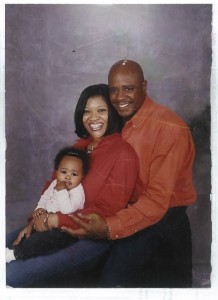Philadelphia family makes difficult choice for daughter’s education

The Bonds family hopes to get their daughter into a charter school.
By Maura Pennington | Watchdog.org
PHILADELPHIA — Jennifer Bonds purchased a home on the street where she grew up in Philadelphia with the recognition that sending her daughter to the district elementary school wasn’t an option.
Bonds attended John Bartram High School when there was no need for metal detectors. It has since become a site of violence that has prompted recent extraordinary intervention measures.
“I can remember a time when Philadelphia schools were good schools. I think they did a good job with me, but things just went really bad really fast by the time I had a child,” Bonds said.
The Bonds family was personally affected by the frightening climate at district schools when Jennifer’s 12-year-old niece was assaulted by bullies at her neighborhood school.
“It was brutal,” she said.
It was Bonds’s preference to send her daughter to a Knowledge is Power Program charter school, but the closest one was a 30-minute commute. The family made the financial sacrifice to send their daughter to a private Christian school where she is now a third grader.
Tuition at that school exceeds $8,000 this year.
Pennsylvania offers scholarships through the Educational Improvement Tax Credit and Opportunity Scholarship Tax Credit programs, but Bonds said it’s a time consuming process to obtain the extra help and, with her husband working as well, people look at their family earnings and don’t see the need.
“Our hope and prayer is that our daughter will be able to enter the KIPP system for fifth grade, but that’s not a certain thing,” Bonds said.
“We have to wait and see what the lottery brings.”
There are 86 charter schools in Philadelphia, but because there are fewer seats available than kids who want to attend them, a lottery is used to determine which students get in and which are left out. The nationwide charter operator KIPP runs four schools in the city.
While approximately 60,000 Philadelphia students attend public charter schools, there are another 40,000 on waiting lists.
This year, the School Reform Commission suspended portions of the state public school code to force charter schools to accept enrollment caps. The district pays a per-pupil cost with deductions for each student that attends a charter school. Charter payments have put the district over budget by about $10 million for the 2013-2014 academic year.
Elsewhere in Pennsylvania, it is illegal to impose an enrollment limit, unless the charter school agrees to it. At least one charter school has filed a lawsuit in response because the School District of Philadelphia will only pay for 400 students, though there are 600 students in attendance.
“The money follows the child. If you have more children leaving district schools, I can see that there are fewer resources. But it just seems so unfair. It seems like an ‘us’ versus ‘them,’” Bonds said.
The same dynamic is playing out in school districts across the state, as charter payments cut into school boards’ bottom lines at a time when they are already pinching pennies in the face of rising retirement costs and reduced support from the state and federal governments.
Legislation to reform many layers of Pennsylvania’s charter school system is still being debated in Harrisburg. Some lawmakers support changes that would allow additional charter schools to be established in response to the demand for seats in existing charters.
For parents like Bonds, it makes sense to keep moving forward with what works.
Her philosophy is that if there are schools in the city that are doing well, the district should try to replicate them, rather than stand in opposition to expansion of choices in education.
“Administrators have to acknowledge that Philadelphia public schools are a problem, put their egos aside and work toward a resolution,” Bonds said.
Contact Maura Pennington at mpennington@watchdog.org and follow her on Twitter @whatsthefracas.







